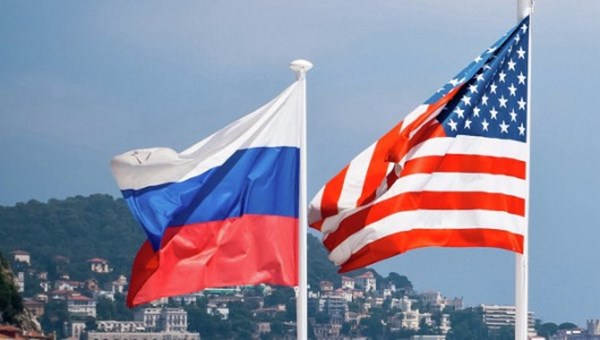Russian billionaires quickly dispose of their assets as US prepares new sanctions
The US administration will soon announce the introduction of a new package of sanctions against Russia, said the head of the US Treasury, Steven Mnuchin, at a briefing.
According to the Countering America's Adversaries Through Sanctions Act signed by Donald Trump in August, the department must submit to Congress a report on Russian officials and businessmen who should be included in the sanctions list including asset freezing and a ban on issuing visas.
The expanded list will include more than 50 people. However, the law that places the Russian Federation on par with Iran and the DPRK requires that the restrictions apply to the members of their families. Overall, almost 300 Russians will fall under potential sanctions, sources in the US State Department told Russian Kommersant newspaper.
Although being on the list does not automatically impose sanctions, its members are likely to fall under various restrictions, said Daniel Fried, the former chief coordinator of the sanctions policy of the US State Department and an expert of the Washington Atlantic Council.
"American and European banks may consider that once a person is on the list, interaction with him will be associated with higher risks," Fried explains, adding that the list will most likely include "people who are really connected with corruption, criminal activities or acts of aggression."
Ahead of the publication of the "Kremlin Report," Russian billionaires stepped up transactions that allow them to dispose of their assets. Thus, in late December, a large stake in the gold mining company Petropavlovsk was sold by billionaire Viktor Vekselberg, who ranks 10th on the Russian Forbes list with a fortune of 12.4 billion dollars.
Shares in Petropavlovsk were sold by offshore entities not included in the sanctions lists but with Vekselberg as the final beneficiary of the transactions. One of the companies, Renova Assets is registered in the Bahamas and the other, Lamesa Holding S.A. in Cyprus. Overall they sold off 17.91% worth of shares. Another 4.42% were sold by Metcombank registered in the Russian city of Kamensk-Uralsky.
Vekselberg’s shares in the second largest gold mining company of Russia that owns four large mines in the Amur region were transferred to another offshore company, Cyprus based Fincraft Holdings Ltd, whose beneficiaries are not known.
Leonid Mikhelson, the richest man in Russia according to Forbes, who hasn’t been included in the US blacklists yet, made a major deal at the end of December with shares of Sibur, a gas processing and petrochemical company in which he owns a controlling stake of 48.5%. Mikhelson transferred a 14.4% stake in Sibur to Gazprombank's trust management.
In January, Alisher Usmanov, who is 5th on the Forbes list and is worth $15.2 billion, sold a controlling stake of 58.29% in Novy Media Holdings, the parent company of UTV Holdings. Novy Media owns stakes in Disney, as well as 75% of STS-Media, and manages the STS, Domashniy, Che (formerly Pertz) and STS Love channels, Interfax reported.
A month earlier, Usmanov's "Megafon" approved the purchase of a 70% stake in Cyprus's Amalior Holdings Limited from another offshore company, MGL Mail.ru Equity Limited, also registered in Cyprus. The press service of the company explained that the deal was part of the creation of a joint venture between Megafon and Mail.ru to launch the "ecosystem of digital products."
